Are you considering using wooden utensils in your kitchen? It would be wise to think of the pros and cons of wooden utensils first.
Wooden utensils have their advantages, such as being gentle on cookware and providing a natural and rustic feel.
However, they also have their drawbacks, such as requiring careful maintenance and being prone to absorbing flavors and odors.
In this article, we will explore the pros and cons of wooden utensils, helping you make an informed choice for your culinary needs.
Key Takeaways
- Wooden utensils are safe for cooking with acidic or alkaline foods.
- They are gentle on cookware, preventing scratches.
- Wooden utensils provide a firm grip, preventing accidents.
- They are environmentally friendly and biodegradable.
Contemplating Pros and Cons of Wooden Utensils
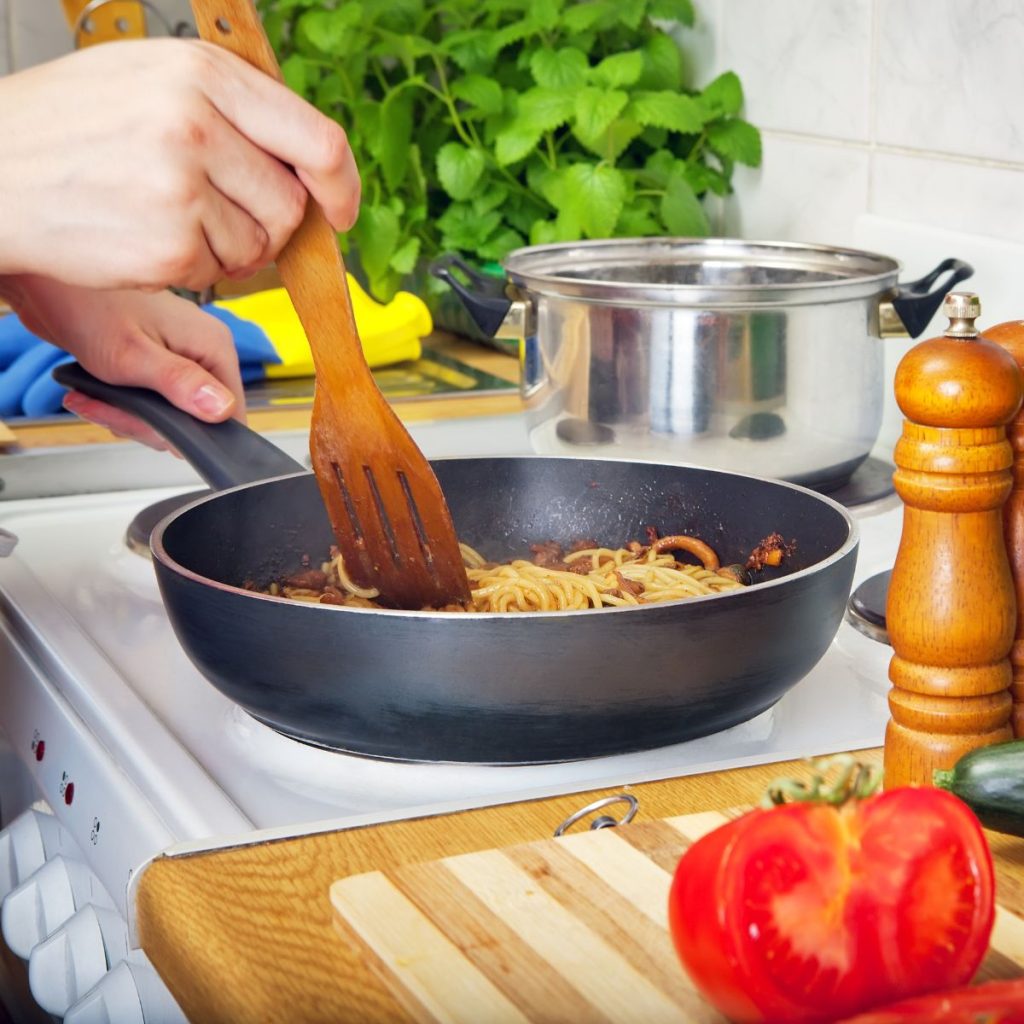
When it comes to the pros and cons of wooden utensils, there is a lot to contemplate.
One of the main advantages of using wooden utensils is that they’re safe for you to cook with.
Unlike metal or plastic utensils, wooden utensils don’t react with acidic or alkaline foods, preventing the transfer of harmful chemicals into your meals.
Additionally, wooden utensils are non-conductive, meaning they won’t heat up and burn your hands while you’re cooking.
The natural texture of wood also provides a firm grip, ensuring that your utensils won’t slip out of your hands and cause accidents.
Another benefit is that wooden utensils are gentle on your cookware, preventing scratches and extending their lifespan.
Furthermore, wooden utensils are environmentally friendly, as they’re made from a renewable resource and are biodegradable.
Cons of Wooden Utensils

While using wooden utensils offers many advantages, there are also some disadvantages to consider.
One major drawback is that wooden utensils can be more prone to cracking and splitting compared to their metal or plastic counterparts.
This can occur when they’re exposed to water for long periods or subjected to extreme temperature changes.
Additionally, wooden utensils require special care and maintenance. They can’t be soaked in water or placed in the dishwasher, as this can lead to warping or damage.
Instead, they should be hand washed and dried immediately to prevent bacterial growth.
Another disadvantage is that wooden utensils may absorb odors and flavors from the food they come into contact with, which can affect the taste of subsequent dishes.
It’s important to note these drawbacks when considering wooden utensils for your kitchen.
Durability of Wooden Utensils
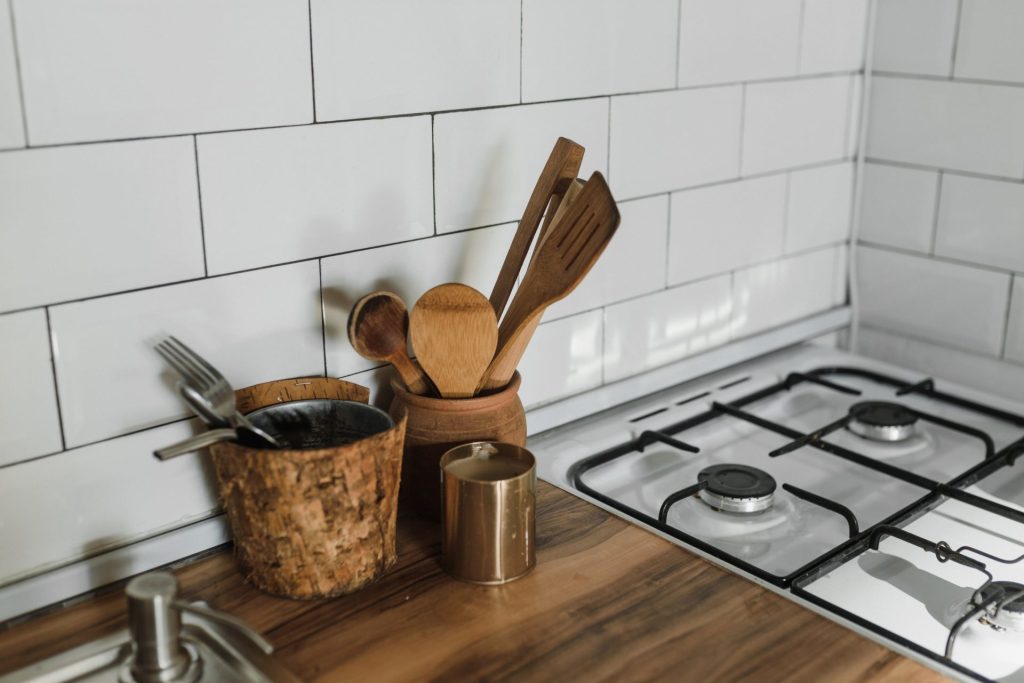
To assess the durability of wooden utensils, you should consider their resistance to wear and tear in everyday use.
Wooden utensils can vary in their durability depending on factors such as the type of wood used, the construction technique, and the care taken by the user.
Here are four key points to help you understand the durability of wooden utensils:
- Natural strength: Wood is inherently strong and can withstand regular use without breaking or bending easily.
- Resistance to heat: Wooden utensils are less likely to melt or warp when exposed to high temperatures, making them suitable for cooking tasks.
- Longevity: With proper care and maintenance, wooden utensils can last for many years, making them a cost-effective choice.
- Vulnerability to moisture: Wooden utensils can be susceptible to damage if left soaking in water for prolonged periods, so it’s important to dry them thoroughly after use.
Hygiene Considerations With Wooden Utensils
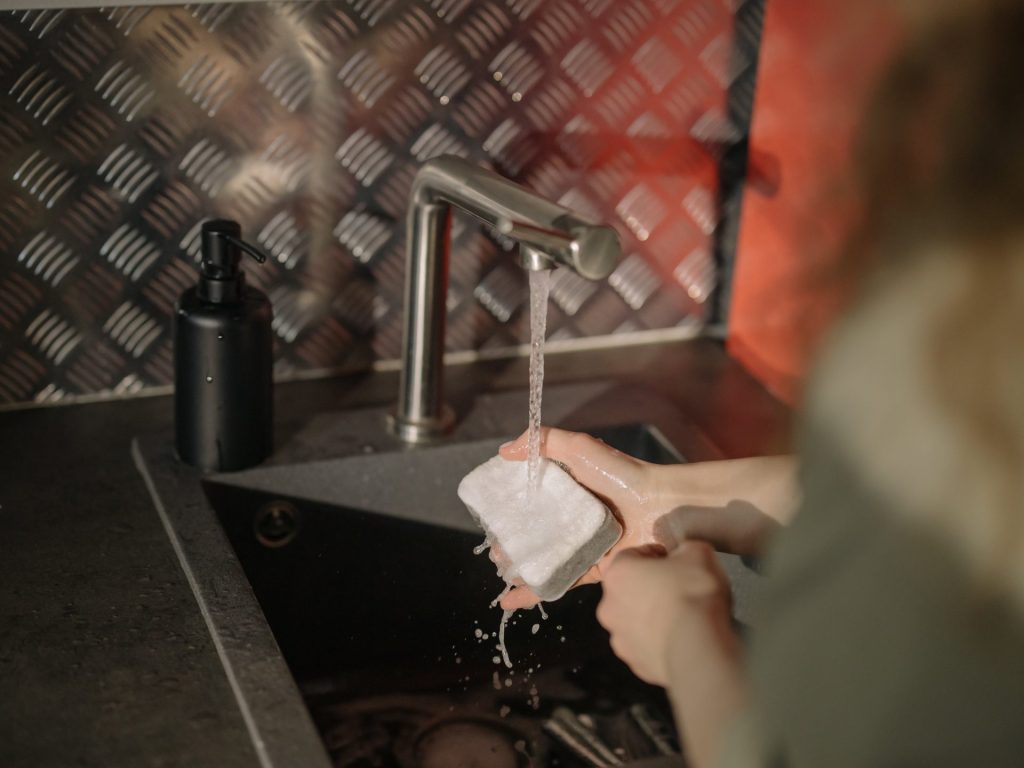
Hygiene considerations can’t be forgone when considering the pros and cons of wooden utensils.
When considering hygiene considerations with wooden utensils, it’s essential to maintain proper cleaning and sanitation practices.
While wooden utensils can be a great addition to your kitchen, they do require some extra care to ensure they remain hygienic.
Unlike metal or plastic utensils, wood is porous, which means it can absorb liquids and food particles.
To keep your wooden utensils clean, start by washing them with warm soapy water immediately after use.
Avoid soaking them for extended periods as this can cause the wood to warp or crack.
Additionally, it’s important to thoroughly dry wooden utensils after washing to prevent any moisture from being trapped and potentially promoting bacterial growth.
If you notice any stains or odors, you can use a mixture of lemon juice and salt to gently scrub the surface.
Lastly, it’s recommended to periodically treat wooden utensils with mineral oil to help maintain their quality and prevent them from drying out.
Maintenance and Care for Wooden Utensils
You should regularly and gently clean and oil your wooden utensils to ensure their longevity and maintain their quality.
Here are some important maintenance and care tips for your wooden utensils:
- Hand wash: Always wash your wooden utensils by hand using warm water and mild dish soap. Avoid soaking them in water for long periods as it can cause the wood to warp or crack.
- Dry thoroughly: After washing, make sure to dry the utensils thoroughly with a clean towel. Excess moisture can lead to mold or mildew growth on the wood.
- Oil regularly: Apply food-grade mineral oil or beeswax to your wooden utensils every few months to prevent them from drying out. This helps to maintain their natural luster and prevents them from absorbing strong flavors or odors.
- Avoid extreme temperatures: Keep your wooden utensils away from direct heat sources, such as stovetops or ovens, as it can cause the wood to become brittle or warp.
Hope this helped you understand the pros and cons of wooden utensils!


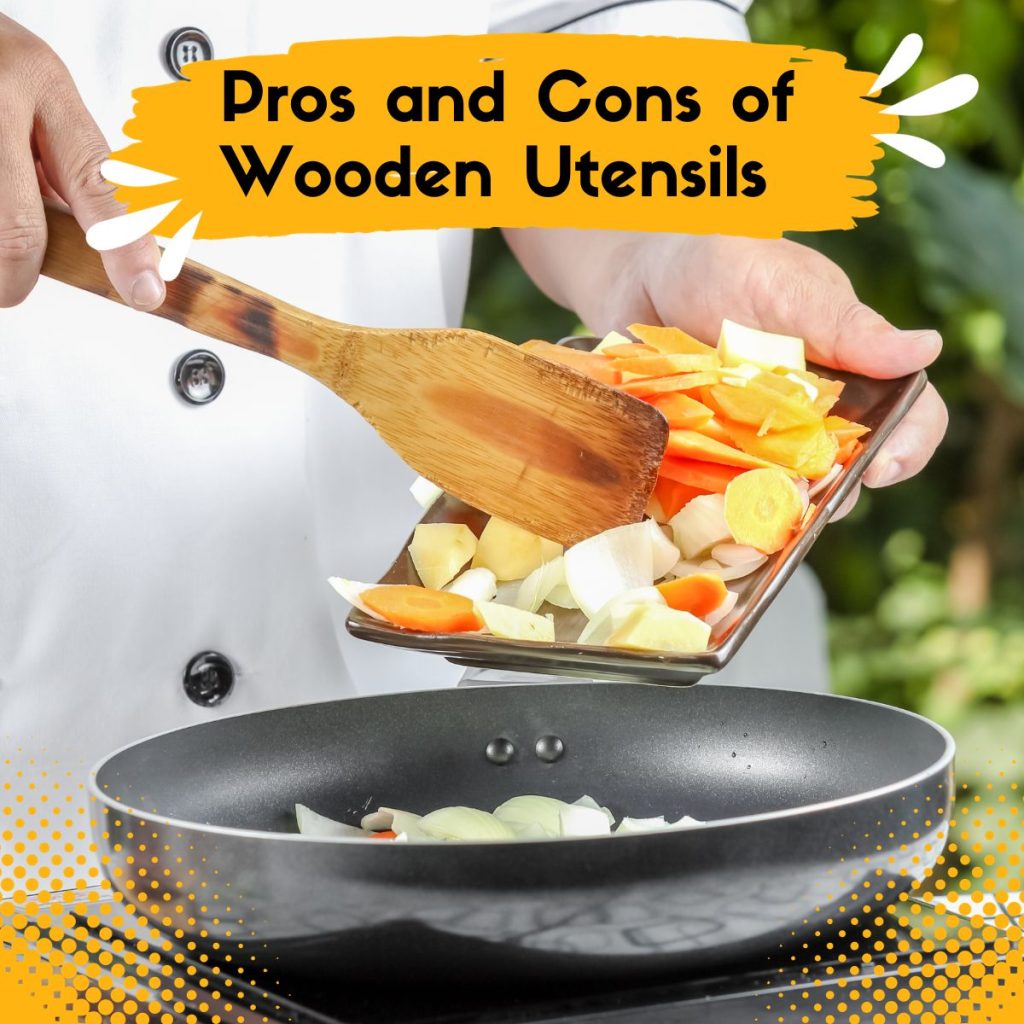




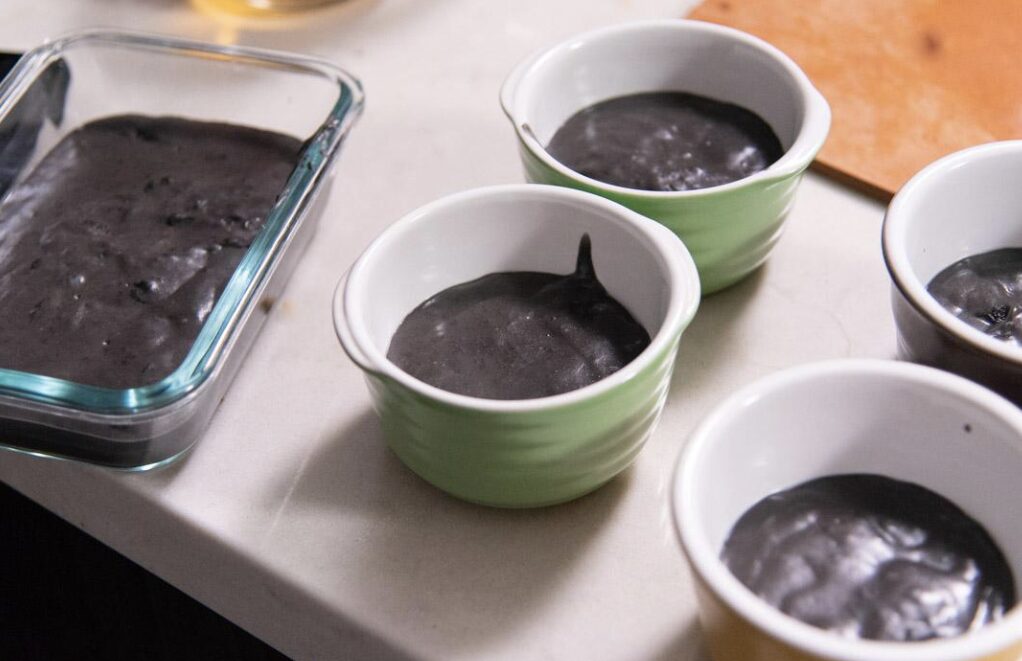
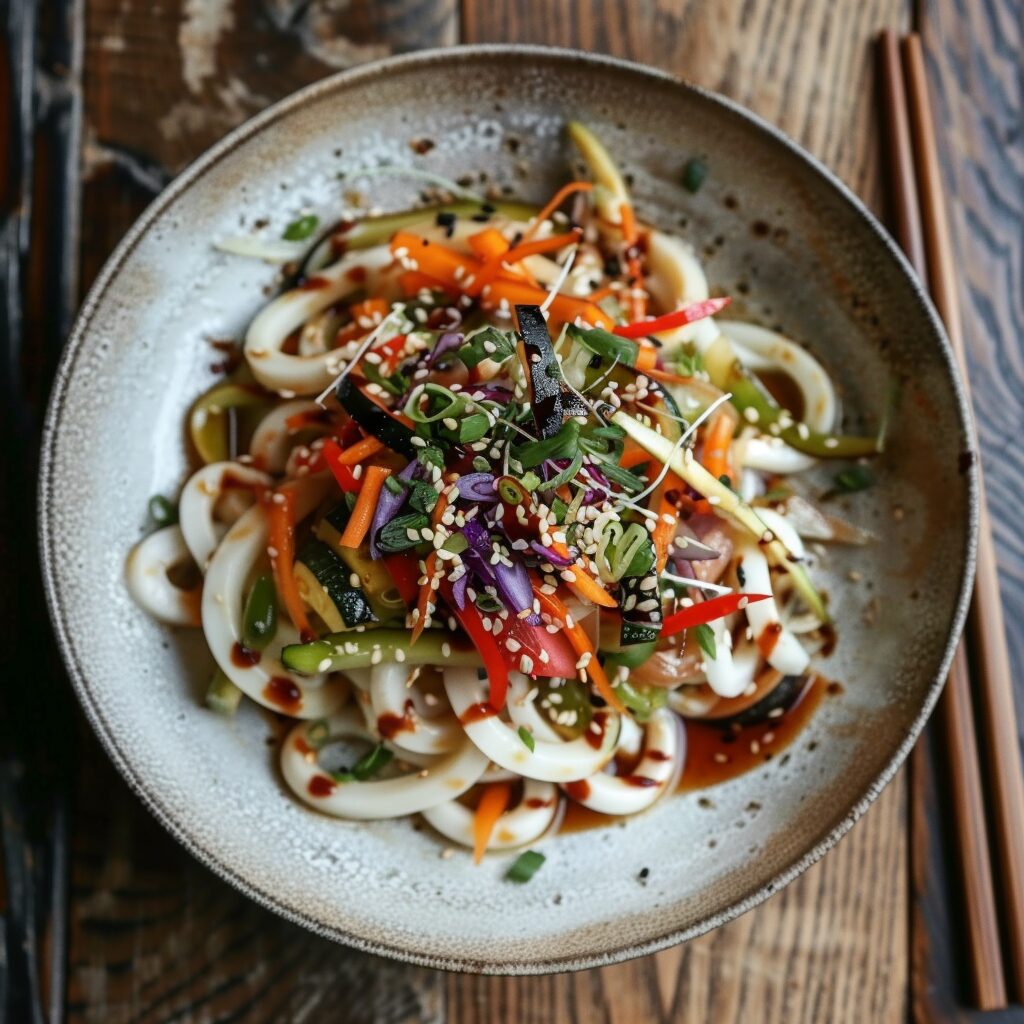

Konnichiwa! (Hello!) I'm Pat Tokuyama, a Japanese tofu cookbook author, who travels for music, food, and adventure. If you like Japanese tea, checkout some of the newestorganic japanese tea, matcha bowls and noren and more!
** Curious about the Plant Based Japanese Cooking Club? ** Learn more here!